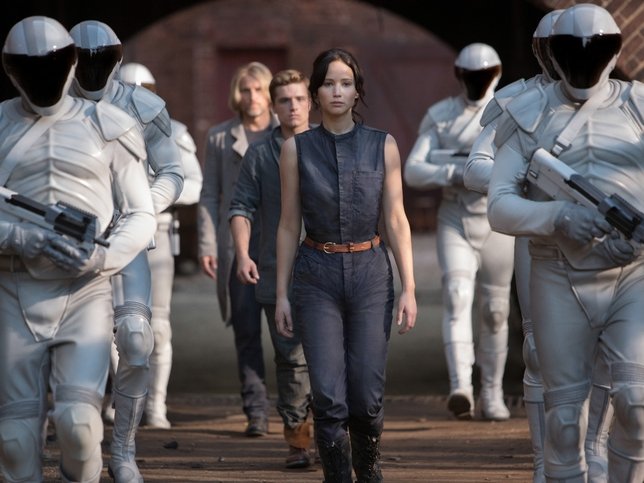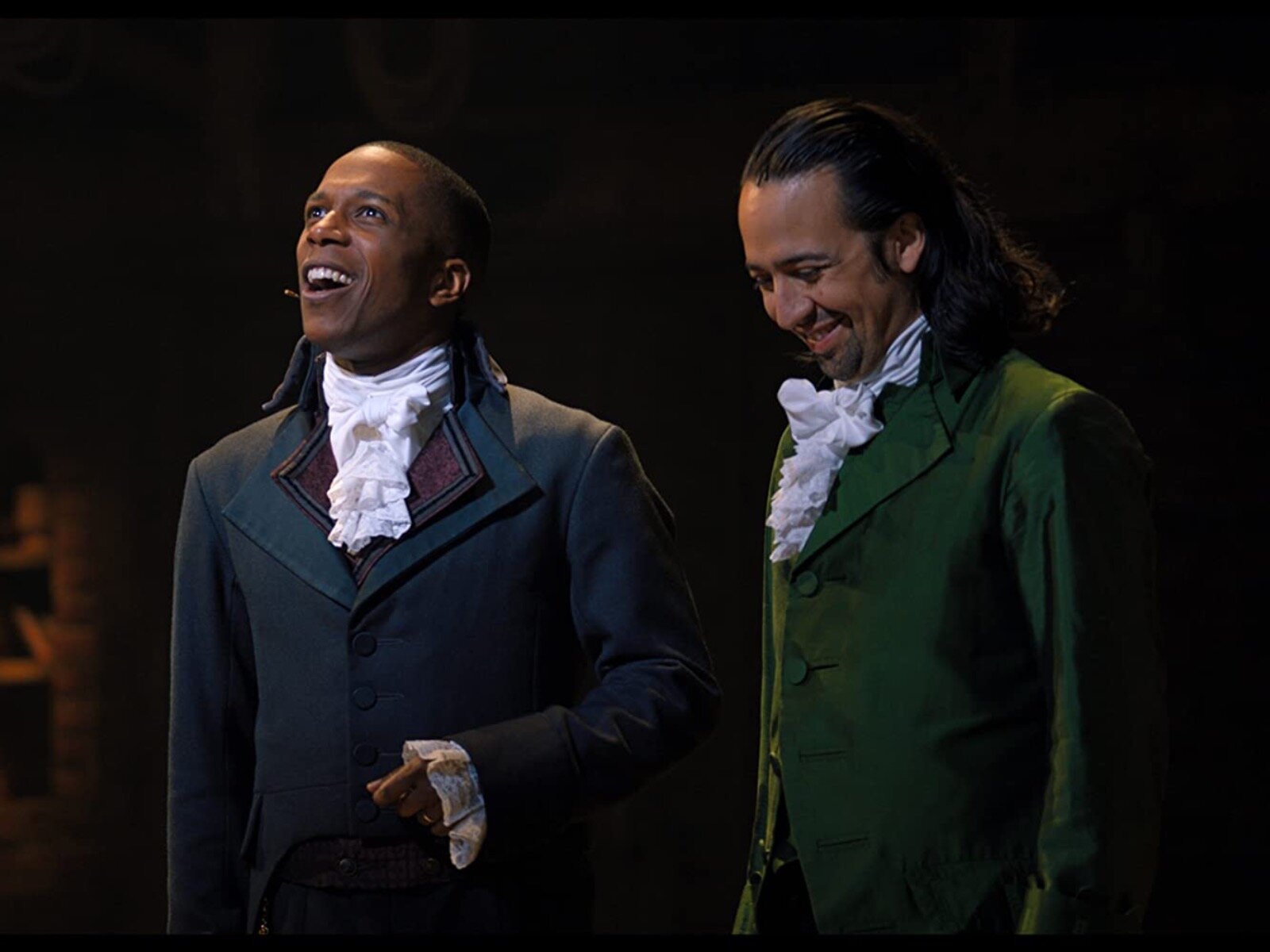For a movie that instantly became a worldwide phenomenon, there was surprisingly little about the first "Hunger Games" film that could be described as phenomenal.
Despite a mid-breakout Jennifer Lawrence as the strong, interesting heroine Katniss, a couple of well-crafted tense sequences and some intriguing ideas, the franchise’s first step was oddly punchless (and tripod-less, thanks to then director Gary Ross’ notoriously tremoring camera). Alongside some other sins – rushing through plot points and emotions, Liam Hemsworth being bland – it felt stuck awkwardly trying to straddle the line between its grim, vicious subject matter and its YA origins – as well as its big box office ambitions.
Ross, sharing a similar, though certainly less severe, fate with Gamemaker Seneca Crane (though not a similar wave-beard … disappointing), ended up getting replaced by Francis Lawrence ("Constantine," "I Am Legend"). The writing team was overhauled as well, with scribes Simon Beaufoy ("127 Hours," "Slumdog Millionaire") and recently booted "Star Wars Episode VII" writer Michael Arndt taking over.
The result? A significantly improved sequel that marks a large step toward the complex, interesting and entertaining blockbuster franchise "The Hunger Games" could be.
Tensions are high in all directions after Katniss’ victorious arrival back in District 12. President Snow (Donald Sutherland, sharp and menacing) is displeased with her performance in the last Hunger Games, as her act of rebellion in the arena has spawned riots and cheers of revolution across the impoverished districts of Panem. He demands Katniss and fellow winner Peeta (Josh Hutcherson) use their upcoming victory tour of the country to smother the outrage – once simmering, now boiling – in the oppressed.
It’s a tough task, especially considering she’ll be stuck selling her showbiz romance with Peeta to the nation, while her quietly bitter real love Gale (Hemsworth, still not blessed with his brother’s effortless charisma) stews back at home in the mines.
The tour, alongside bubbly cartoon Effie (Elizabeth Banks) and former winner/current drunk Haymitch (Woody Harrelson), is a failure, potentially causing more uproar than when it started. Increasingly brutal militaristic force and public floggings fail to beat the people back into submission. With the 75th Hunger Games – a Quarter Quell – approaching, Snow, alongside new Gamemaker Plutarch Heavensbee (Philip Seymour Hoffman, a welcome additional dose of humanity), decides the pool of contestants will be selected from previous survivors. The incidental figureheads of the revolution will fall. The revolts should fall soon after.
Much of what makes "Catching Fire" an improvement over the first film takes place in this first half. There still are remnants of the movie’s YA origins – namely the seemingly genre-mandated love triangle and the gaudy costumes that still are unconvincing as even merely cultural commentary – but the film and its universe feel more real and haunted.
The world of Panem is bigger and more alive, filled with uneasy nerves, hurt, pain and anger. "The Hunger Games" may have set the table, but this chapter is where the ramifications are truly felt, individually and socially. Civilians are executed in the streets as Snow escalates the police’s brutality. Katniss has to stop an early turkey hunt when firing an arrow triggers a memory of a fallen competitor.
If the first film felt too light, its sequel gains excitement and tension by emphasizing the dread-filled weight of everything that’s come before and being on the brink of what could come next. Here, the wounds are no longer scabbing over but opening further, and the social fervor bleeds into each scene, intensely fueling the story.
There’s an exciting sense of things growing and igniting unpredictably before your eyes as the first chunk of "Catching Fire" rolls on. The world is carefully edging toward the brink of falling into dangerous but necessary chaos while our leads attempt to balance being pawns and being protesters.
Lawrence – Francis, that is – and his screenwriters keep all of this dark political and emotional drama moving with an urgent, incendiary energy. The pace isn’t rushed or fast at the cost of the characters or drama, however. There is still room for nice character moments, like a chat between Peeta and Katniss where the two supposed loved ones attempt to actual learn something about each other, and for the grim details of their dystopia (a fancy Capital party involves a pink drink that helps the wealthy vomit up food to make room for more).
Lawrence – Jennifer this time – slips nicely back into her star-making role. Her Katniss is still a captivating mix of sternly focused strength and vulnerability, with the weight of revolutions and lives visibly weighing heavily on her character’s young shoulders. She even gets to pull out some of those loveably entertaining interview faces during her amusingly awkward introduction to fellow competitor Johanna (a fierce Jena Malone).
Hutcherson isn’t merely as compelling (it’s still not convincing Katniss would be interested in either of these two generic fellows), but during the downtime, he makes easy company with Lawrence. Meanwhile, Harrelson is secretly earns the film’s MVP from the sidelines, managing to be both dryly funny and dramatic. The grim memory of his past "success" still weighs heavy when he notes to Katniss, "There are no winners, only survivors."
While the first half of "Catching Fire" smartly and thrillingly plays like a revolution in action, the Hunger Games themselves are once again ironically the least interesting part of "The Hunger Games." It might simply be a case of déjà vu, as the film plays out many of the same beats of the first film: the TV show appearances with Capital tool Caesar Flickerman (Stanley Tucci, a fun ham again), the training sequences, the garish parade of district-themed costumes for the competitors, etc. The arena is new at least, now a balmy saltwater lake.
The main cause, however, is that when it comes to the Games, the series is still afraid to actually offend or disturb. The contestants are all adults this time around, but there’s still something soulless about the way the movie dispenses with those forced into the slaughter. And that’s even if the characters end up having to kill one another. The story tames the moral dilemmas by loading up generic arbitrary challenges, this time in the form of baboons and poison fog. It doesn’t want to make the audience feel too bad about the whole murder for entertainment thing.
Still, this round is still a vast improvement over the first film. Lawrence the director has a much more dynamic visual eye, something that’s obvious from the start when he takes the oddly 1940s forest town look of District 12 and replaces it with a wintery blue industrial town that looks fittingly chilly and dire. He also has an assured hand on the action and even still fits in some impressive imagery into the games, such as the eerie poison fog’s descent into through the jungle arena and a mesmerizing blue-and-orange hued sunset on the beach. Fans will also be happy to know the shaky cam has seemingly been banished from the series.
The new characters and performers are also all interesting in their own ways, from Sam Claflin as cocksure but loyal Finnick Odair to Jeffrey Wright as the warmly brainy, slightly off Beetee. It’s not only a larger batch of characters during the games, but also one that’s more dynamic and compelling.
Thanks to the Lawrences – both the one in front of the camera and the one behind it – the action is fairly intense and exciting. But this is still where the movie is most at odds with itself, its younger audience ambitions and box office obligations keeping it from being challenging during the moments when it should be the most difficult. The film has the material to summon some really powerful, challenging emotions and reactions, but it doesn’t quite have the guts to go through with it.
Besides a chill-inducing sequence involving some jabberjays mimicking the death cries of loved ones, it’s easy to forget during the games in "Catching Fire" that this movie once had some edge. It gums when it should bite.
However careful and uneasy, "Catching Fire" is still a step in the right direction for the series. It’s a smarter, darker, better crafted and more compelling film in almost every regard, and the twist/cliffhanger ending leads into an intriguing direction for the next two installments. The movies haven’t quite had the guts for the actual Hunger Games. Maybe that’ll change with a move toward something even more vicious and cruel: war games.
As much as it is a gigantic cliché to say that one has always had a passion for film, Matt Mueller has always had a passion for film. Whether it was bringing in the latest movie reviews for his first grade show-and-tell or writing film reviews for the St. Norbert College Times as a high school student, Matt is way too obsessed with movies for his own good.
When he's not writing about the latest blockbuster or talking much too glowingly about "Piranha 3D," Matt can probably be found watching literally any sport (minus cricket) or working at - get this - a local movie theater. Or watching a movie. Yeah, he's probably watching a movie.







